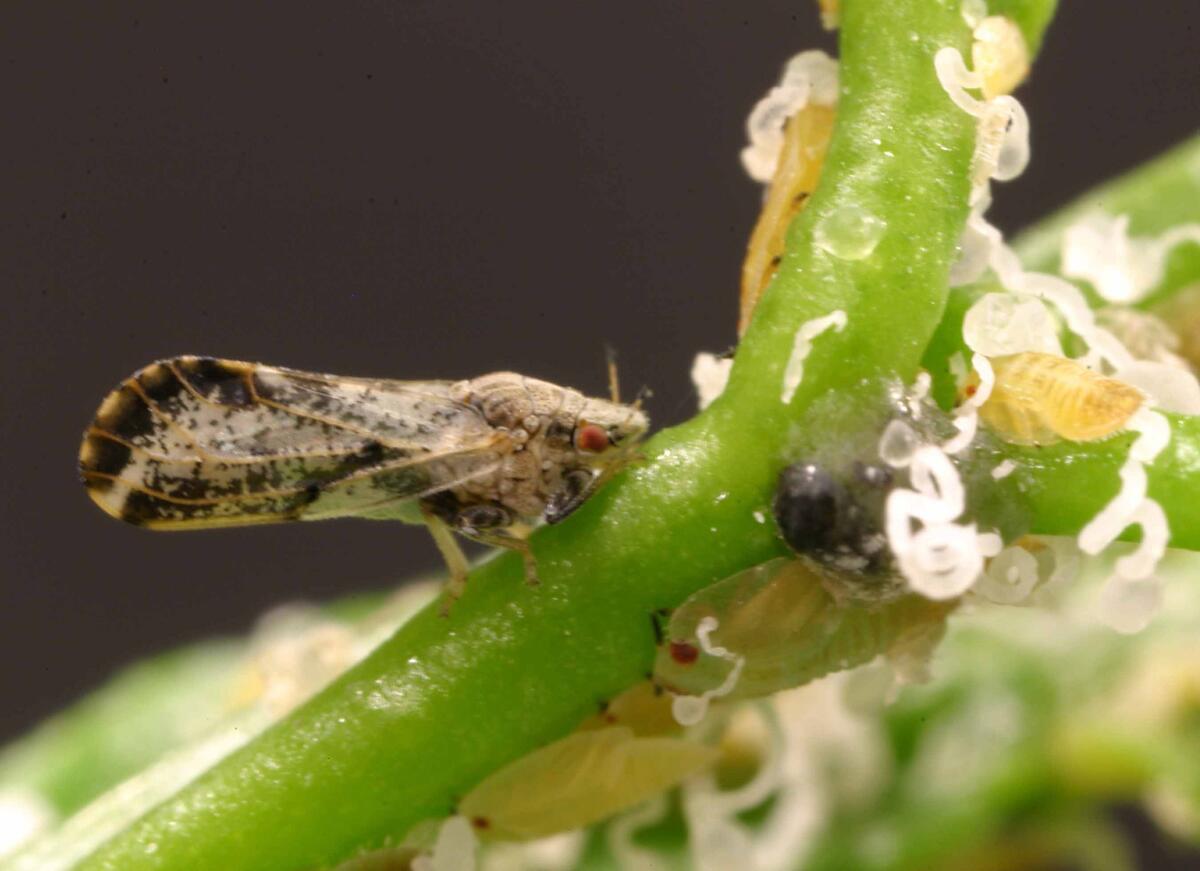Deadly citrus disease found in San Gabriel Valley

The Asian citrus psyllid spreads citrus greening disease, which is lethal to citrus trees.
A deadly bacteria that can decimate citrus has been found in the San Gabriel Valley, the second such discovery in three years, according to agricultural officials.
Huanglongbing, or citrus greening disease, was detected last week on a kumquat tree in a residential area of San Gabriel. The bacterial disease, which can be spread by the citrus psyllid bug, was first detected in 2012 in Hacienda Heights, about 15 miles away, according to the California Department of Food and Agriculture.
Agricultural inspectors are examining other citrus trees in the vicinity and are preparing for a quarantine that would limit the transport of plants, according to CDFA. Similar quarantines in response to the presence of the citrus psyllid already are in effect in 17 California counties, including Los Angeles, Ventura, Santa Barbara and San Bernardino, the agency said.
California’s $2-billion citrus industry, where 80% of the country’s fresh citrus originates, has been concerned about spread of the disease since it first was detected in Florida, in 2005, about seven years after the psyllid first was found there.
Citrus greening disease has caused $2.9 billion in damage to Florida’s citrus industry, and it was a driving force behind the decimation of Mexico’s lime crop last year.
The bacteria does not pose a health threat to humans, but it attacks the citrus tree’s vascular system, resulting in fruit that is hard, bitter and misshapen.
The disease has been detected in Georgia, Louisiana, South Carolina, Texas, Puerto Rico and the U.S. Virgin Islands, according to the U.S. Department of Agriculture. At least 15 states or territories have quarantines in effect after detecting the bug that spreads the bacteria. They include: Alabama, American Samoa, Arizona, California, Florida, Georgia, Guam, Hawaii, Louisiana, Mississippi, Northern Mariana Islands, Puerto Rico, South Carolina, Texas, and the U.S. Virgin Islands.
The USDA is scaling up efforts to release a predatory wasp to combat the psyllid and halt spread of the bacteria.
CDFA officials are urging anyone who suspects insect or bacterial infestation to call the agency’s toll-free pest hot line at 1-800-491-1899 or visit: https://www.cdfa.ca.gov/phpps/acp/
Follow me on Twitter: @LATgeoffmohan
More to Read
Inside the business of entertainment
The Wide Shot brings you news, analysis and insights on everything from streaming wars to production — and what it all means for the future.
You may occasionally receive promotional content from the Los Angeles Times.











